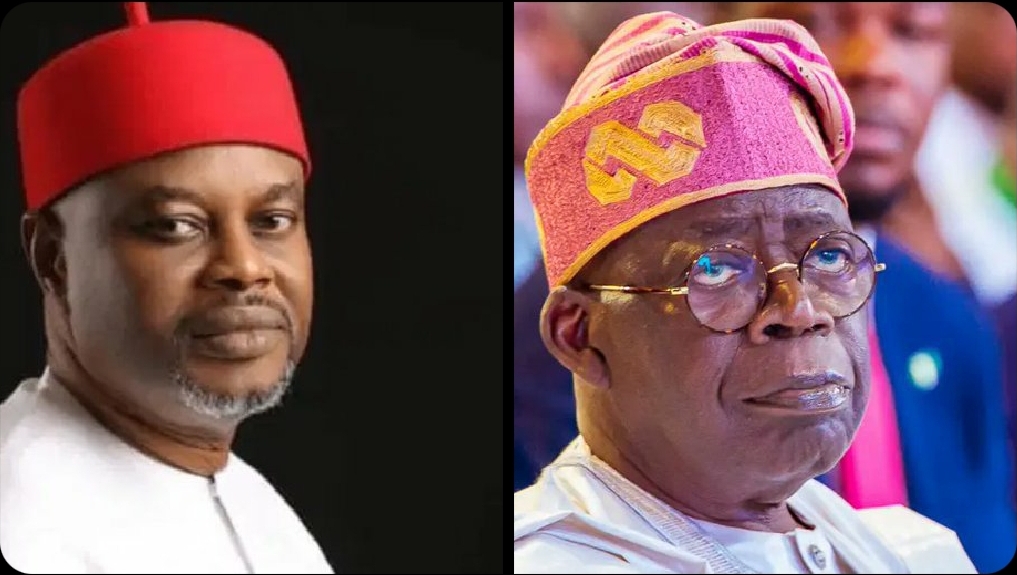

In a stunning twist that has sent ripples through Nigeria’s political landscape, President Bola Ahmed Tinubu has accepted the resignation of Geoffrey Uche Nnaji, Minister of Innovation, Science, and Technology, following mounting allegations of certificate forgery tied to the University of Nigeria, Nsukka (UNN).
The decision, confirmed by the Presidency on Monday, October 7, 2025, marks one of the few instances in Tinubu’s administration where a serving minister has stepped down amid an integrity scandal.
Nnaji’s resignation comes after weeks of controversy surrounding his academic credentials. Reports first surfaced in late September when Premium Times published findings indicating discrepancies between the minister’s claimed UNN degree and official university records.
The university, in a letter reportedly sent to investigative authorities, disavowed issuing any such certificate, asserting that “no record exists” of Nnaji’s attendance or graduation from its engineering faculty — the degree he had long flaunted in his political and professional career.
In his resignation letter, Nnaji denied any wrongdoing, describing the forgery allegations as “a politically motivated smear campaign aimed at tarnishing my name and destabilizing the Ministry.” He maintained that he possessed “authentic qualifications,” and that his resignation was to “allow the truth to prevail without distractions to the President’s Renewed Hope Agenda.”
However, the mounting evidence left little room for ambiguity. Investigative journalists uncovered inconsistencies not only in his university documents but also in his National Youth Service Corps (NYSC) certificate, raising questions about the authenticity of his entire academic and professional record. Civil society organizations, including the Centre for Democracy and Transparency (CDT), had intensified calls for his removal, urging President Tinubu to act decisively to “prove that accountability is not selective.”
The Presidency’s rapid response has been interpreted by many as an attempt to demonstrate credibility in the face of growing criticism that Tinubu’s government often shields top officials from scrutiny. Presidential spokesperson Ajuri Ngelale, in a brief statement, said: “President Bola Tinubu has accepted the resignation of Dr. Geoffrey Uche Nnaji and has directed the Secretary to the Government of the Federation to initiate immediate administrative procedures to fill the vacancy.”
Reactions on social media have been swift and divided. On X (formerly Twitter), Nigerians flooded timelines with a mix of sarcasm and relief. One viral post read, “Finally, accountability has entered the building—briefly.” Others expressed skepticism, suggesting the resignation was “a soft landing” to preempt criminal prosecution. Some users also demanded that Nnaji face legal action, with trending hashtags like #ProsecuteNnaji and #ForgeryInPower dominating Nigerian online discourse.
Political analysts say the scandal exposes deeper cracks in Nigeria’s ministerial vetting system, which has long been criticized for prioritizing political loyalty over merit and verification. “This is not just about one man’s certificate,” noted governance expert Dr. Funmi Adeoye. “It’s about systemic negligence and a lack of institutional due diligence in screening public appointees. The fact that a minister could serve for nearly two years before his qualifications were challenged tells you how broken the system is.”
The fallout also rekindles memories of past controversies, including former finance minister Kemi Adeosun’s 2018 resignation over a forged NYSC exemption certificate — a case many thought had set a precedent for stricter vetting but appears to have been largely ignored.
Within the ruling All Progressives Congress (APC), insiders report a quiet scramble to manage the optics of the situation. Party figures close to the presidency have privately described the move as “damage control,” intended to prevent the opposition from weaponizing the scandal in upcoming local elections.
Despite the uproar, Nnaji’s camp maintains his innocence. Aides close to the former minister told journalists that he plans to “clear his name” through legal means, insisting that the alleged documents were “manipulated by political adversaries.”
For many Nigerians, however, the resignation stands as a symbolic moment — rare, but refreshing — in a country where allegations of certificate forgery and identity fraud among public officials often fizzle out without consequence. Whether this signals the start of a genuine accountability culture or just another fleeting headline remains to be seen.
As one X user put it bluntly, “If Tinubu means business, then Nnaji’s case should not end with resignation — it should end in court.”


